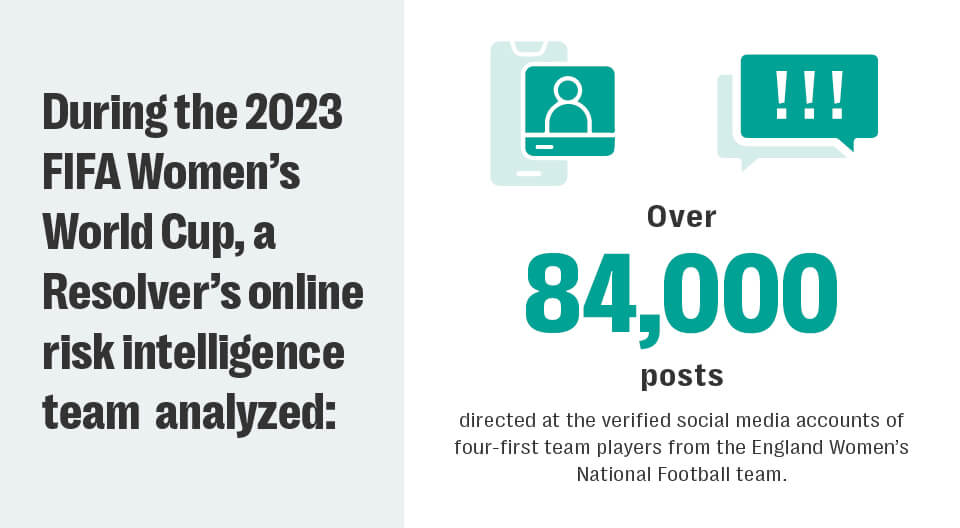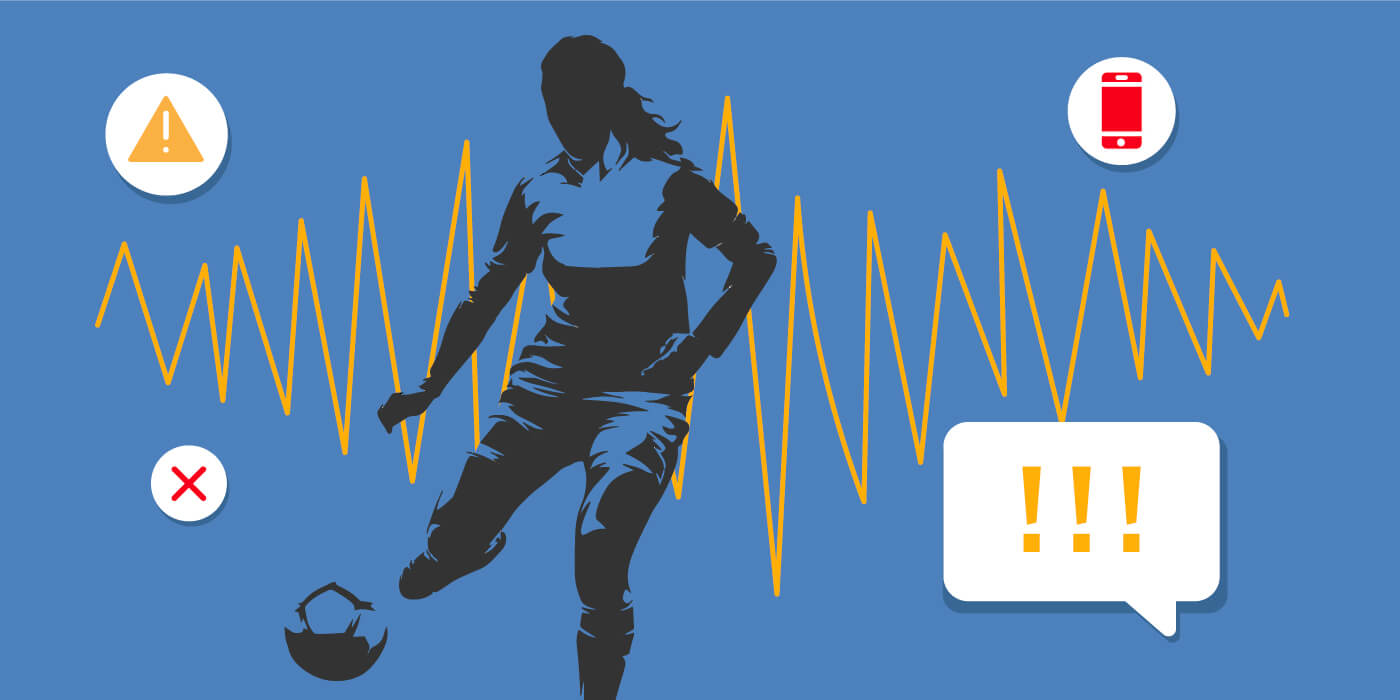Online abuse tied to athletic performance isn’t new—especially for those responsible for player welfare, team performance, or brand protection. But what was once a background concern is now front and center, fueled by real-time data, rising stakeholder scrutiny, and growing risks to athlete mental health and brand equity.
Harassment in sports is now measurable, predictable, and high-impact. Abuse spikes after high-pressure moments: red cards, missed goals, controversial calls. The emotional cost is immediate. The reputational fallout is lasting—affecting players, clubs, and brands alike. That predictability makes intervention not only possible, but essential.
These patterns affect more than just players. They erode athlete wellbeing, fan trust, and sponsor confidence—turning toxic commentary into a strategic leadership concern.
As this challenge scales, leagues are shifting from reactive crisis comms to proactive digital oversight, using real-time systems to detect and address harmful content before it spreads.
Read on to explore:
- The data behind online abuse in sports
- The real-world impact on players and organizations
- How teams are evolving their approach to digital risk
When online abuse peaks: Patterns that put athletes at risk
Before the whistle blows or the ball hits the net, the backlash is already brewing. Resolver’s analysis of harmful content directed at athletes shows clear spikes in abuse tied to match-day pressure.During the 2023 FIFA Women’s World Cup (July 20 to August 20), our online risk intelligence team analyzed over 84,000 posts targeting verified social accounts of four players from the England women’s national football team — Millie Bright, Jess Carter, Lauren James, and Niamh Charles. The investigation revealed that spikes in abuse and harassment toward players directly correlated with on-pitch events, with the highest frequency of abuse occurring during match-day fixtures for the Lionesses.

Looking closer, we found that personal abuse, reputation-damaging accusations, and hate speech were the most common forms of abuse directed at the athletes. Terms like “racist,” “shame,” “kill,” “stupid,” and “ugly” appeared hundreds of times in posts during the tournament.
More recently, in 2024, a Chennai Super Kings match in the IPL sparked a wave of vitriol. This time, the abuse focused on a young player and the referee after a disputed call. Similarly, in early 2025, French tennis player Caroline Garcia spoke out against “damaging abuse” received by tennis players on social media after losing matches.
These moments might vary by sport or setting, but the pattern is the same: emotionally charged events fuel toxic commentary, often with lasting impact.
How sustained online abuse impacts sports athletes
These patterns carry real-world consequences. The impact of online abuse stretches far beyond the players on the receiving end. It affects team culture, fan trust, and brand partnerships.
Over time, constant online abuse takes a serious toll. According to research by FIFA and FIFA PRO, online abuse has been linked to anxiety, depression, trauma, social withdrawal, and, in extreme cases, self-harm. For athletes under constant public scrutiny, the psychological toll can be immense.
The damage doesn’t stop with players. When this abuse goes unchecked, it affects team dynamics, damages sponsor relationships, and erodes fan communities. It undermines the safe, inclusive environments that clubs and leagues work hard to create.
Common forms of digital abuse in sports include:
- Personal abuse: Insults aimed at appearance, performance, or personal life
- Hate speech and racism: Discriminatory language and threats
- Reputation-damaging accusations: False or exaggerated claims that spread quickly
Unchecked, this behavior corrodes fan communities and turns once-safe digital spaces into hostile ground, not just for players but for anyone engaging in good faith. While awareness is growing and some efforts are underway, response strategies still lag behind. What starts as online outrage can quickly evolve into a prolonged, deeply personal assault with consequences that ripple well beyond the screen.
Safeguarding athletes with AI-powered social listening
Policy can’t keep pace with the speed and scale of online abuse. That’s why leading sports organizations are turning to AI-powered social listening, backed by expert analyst support, to shift from reactive crisis management to proactive digital risk detection.
Resolver offers a fully managed service that combines traditional social listening and media monitoring with human intelligence to surface only the most urgent, credible threats. Our analysts separate signal from noise — helping teams spot harassment patterns, flag repeat offenders (even behind burner accounts), and act before abuse escalates.
This isn’t just about tracking mentions or sentiment. It’s about protecting athlete mental health, reducing alert fatigue, and ensuring digital spaces reflect the respect players earn on the field.
Resolver’s online risk intelligence helps clubs, leagues, and sponsors limit harm, protect brand trust, and show real-time support for athlete well-being — all while strengthening leadership accountability in high-stakes moments.
From risk to action: How sports leagues can protect athlete well-being
This isn’t about censorship. It’s about accountability, prevention, and protecting human performance in a high-stakes digital environment. As online abuse becomes more visible and more damaging, sports leaders must treat it as a reputational risk — not just a PR issue.
Resolver’s Athlete & VIP Well-being service helps leagues, clubs, and sponsors detect and address digital abuse in real time. We monitor public channels, flag high-risk content, and deliver clear, actionable intelligence to security, communications, and executive teams.
Want to see how it works? Preview a Resolver Bad Actor Report to see how we detect coordinated threats, surface repeat offenders, and help you protect athlete mental health — before abuse becomes a headline.
As part of our comprehensive Athlete & VIP well-being service, Resolver partners with clubs, leagues, and sponsors to spot abuse early and act fast.
